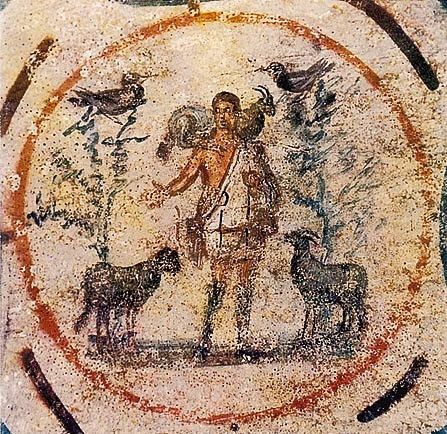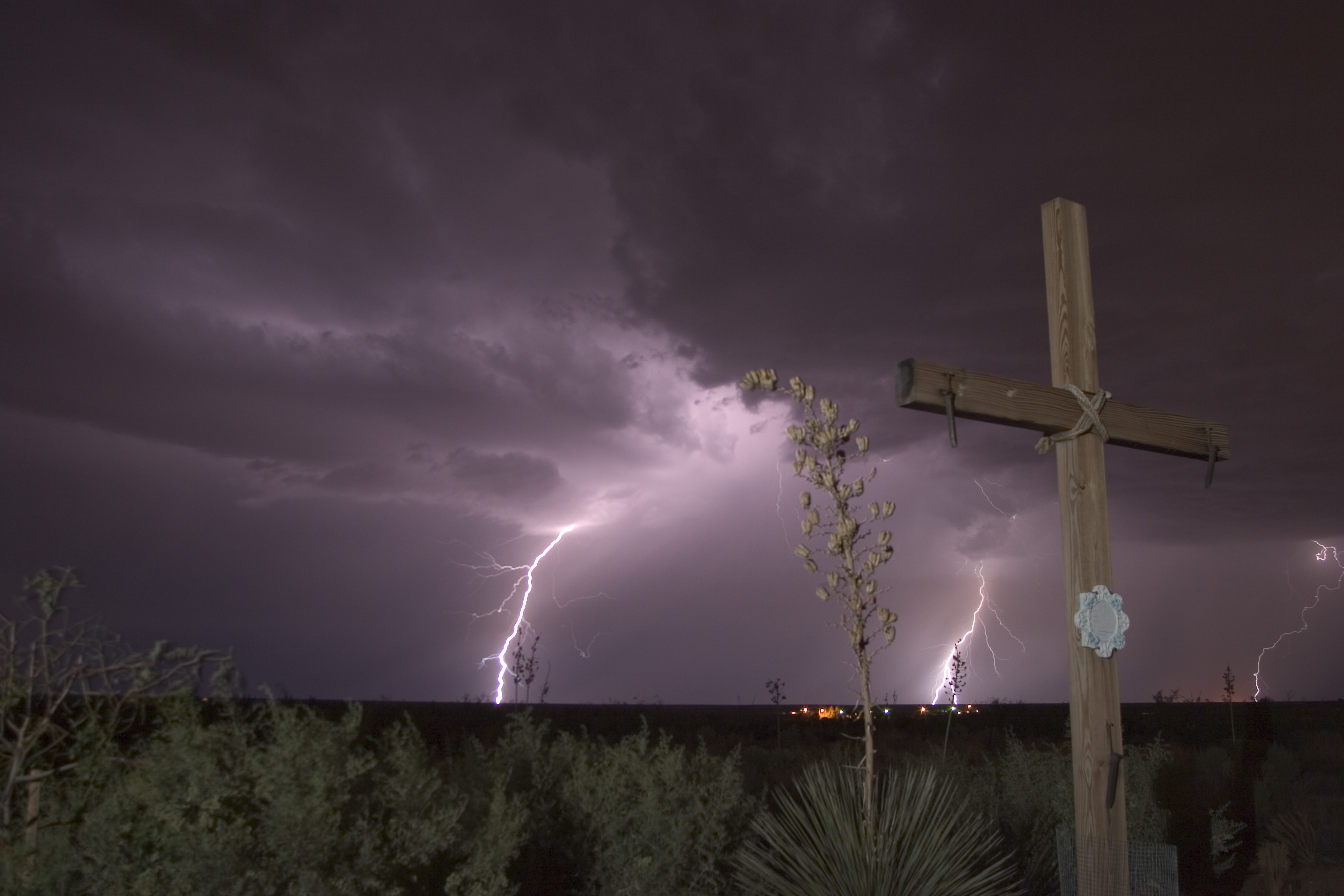Easter: 4th Sunday
Gospel Reading: John 10:1-10 (World English Bible, Public Domain)
“Most certainly, I tell you, one who doesn’t enter by the door into the sheep fold, but climbs up some other way, is a thief and a robber. 2 But one who enters in by the door is the shepherd of the sheep. 3 The gatekeeper opens the gate for him, and the sheep listen to his voice. He calls his own sheep by name, and leads them out. 4 Whenever he brings out his own sheep, he goes before them, and the sheep follow him, for they know his voice. 5 They will by no means follow a stranger, but will flee from him; for they don’t know the voice of strangers.” 6 Jesus spoke this parable to them, but they didn’t understand what he was telling them. 7 Jesus therefore said to them again, “Most certainly, I tell you, I am the sheep’s door. 8 All who came before me are thieves and robbers, but the sheep didn’t listen to them. 9 I am the door. If anyone enters in by me, he will be saved, and will go in and go out, and will find pasture. 10 The thief only comes to steal, kill, and destroy. I came that they may have life, and may have it abundantly.
Reflection:
The Inner Shepherd by David Morrison
On the early morning of Jesus’ resurrection, we find an empty tomb. However, our faith does not remain at this vacant place. We are not left with an empty tomb, but with a living shepherd who invites us in this new quality of life. Jesus urged Thomas to put his fingers into his wounds as a sign that we all are now hidden in these living wounds. “For you died, and your life is hidden with Christ in God. When Christ who is our life appears, then you also will appear with Him in glory” (Col. 3:3-4). Our risen Lord vanished from the sight of the disciples on the Emmaus road as a sign that He now lives in his people forever through the indwelling Spirit. “Suddenly the two disciples, who ate the bread and recognized him, are alone again. But not the aloneness with which they began their journey…We are alone, because he disappeared from our sight, but we are together because each of us is in communion with him” (Henri Nouwen, With Burning Hearts). These post-resurrection events all point to the Lord inviting us to follow Him in His risen life: We his sheep, He our shepherd.
When teaching the “shepherd/sheep” texts, pastors and teachers often amuse their audiences about how stupidly helpless sheep are, and how we are just the same. While this may have some merit, we should never forget how precious sheep are to the shepherd. To what extent are we “sheep” precious to the Good Shepherd? He became a sheep like us as “The Lamb of God who takes away the sin of the world” (Jn. 1:29). Jesus says, “I am the good shepherd who gives His life for the sheep” (Jn. 10:11). Note the manner in which he lays his life down—the shepherd becomes a lamb, like us. We are the sheep who have gone astray, but He is the Lamb of God who finds us in the wilderness of our world and becomes the shepherd of our souls.
The manner in which the shepherd “takes up his life again” is equally curious because after his resurrection and ascension, He still dominantly chooses to manifest himself as the Lamb who shepherds us on the path of resurrected life: “for the Lamb who is in the midst of the throne will shepherd them and lead them to living fountains of waters. And God will wipe away every tear from their eyes” (Rev. 7:17). When John the Revelator sees Christ in glory, he manifests as “The Lamb” 26 times and the “King of Kings” only twice. Even glorified in heaven, Jesus prefers to disclose himself as “the Lamb”: an image of perfect humility in absolute power and honor. As the Holy Spirit guides us in the paths of Jesus’ risen life, we find everything in our lives: our personalities, desires, and intellects increasingly saturated in authentic humility.
As the early Christians were martyred, many were buried in the catacombs of Rome. The believing community would paint the image of The Good Shepherd on many of their tombs. This served as a sign that they were not really “dead” in the sense of what is normally defined as “dead.” Rather, they were shepherded by the one who “died once for all” (Rm. 6:10) and now lives in the power of eternal life. The early church did not regulate the Good Shepherd to the one who met them only at their departure from this life and was not really accessible in the meantime. Rather, He united them intimately to His resurrected life in their mortal bodies—the moment they believed. The image of the Good Shepherd on their graves served as a sign that He was their Risen Shepherd in their present world—not only in the world to come. “And when he brings out his own sheep, he goes before them; and the sheep follow him, for they know his voice” (Jn. 10:4), Jesus says. His voice is a living voice that calls across the generations and ages, and invites us to follow him today in his new life eternal.
Prayer:
Psalm 23: A Psalm by David.
1Yahweh is my shepherd:
I shall lack nothing.
2 He makes me lie down in green pastures.
He leads me beside still waters.
3 He restores my soul.
He guides me in the paths of righteousness for his name’s sake.
4 Even though I walk through the valley of the shadow of death,
I will fear no evil, for you are with me.
Your rod and your staff, they comfort me.
5 You prepare a table before me in the presence of my enemies.
You anoint my head with oil. My cup runs over.
6 Surely goodness and loving kindness shall follow me all the days of my life,
and I will dwell in Yahweh’s house forever.

Center of the ceiling of the “Velatio” cubicle: the Good Shepherd (also sheep and doves with olive branches in trees). Location: Catacomb of Priscilla, Italy, Rome. Date: Second half of the 3rd century. Courtesy of Wikipedia, Public Domain photo
*Top banner Image: The Searching Shepherd by David Morrison, 2023







